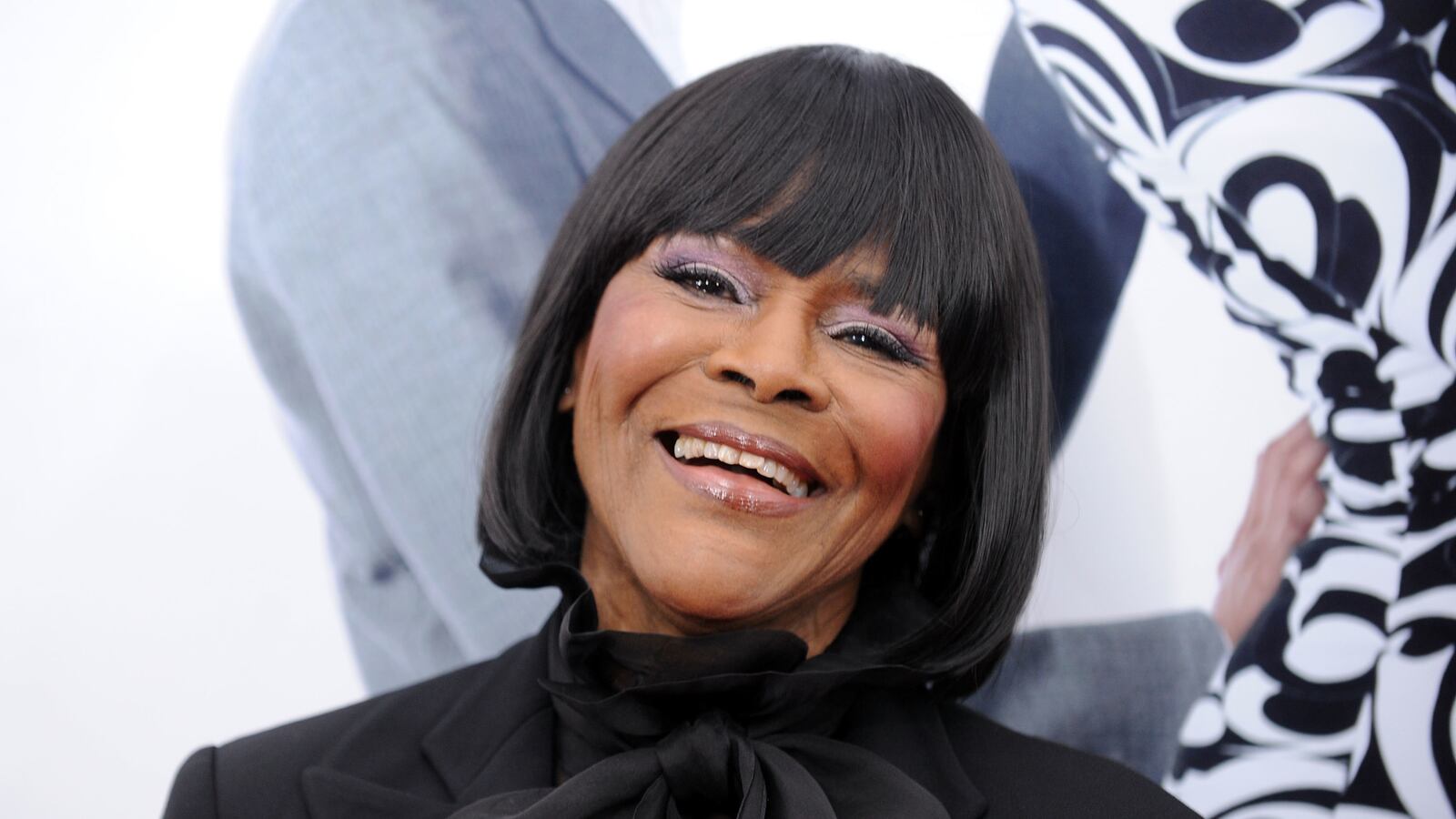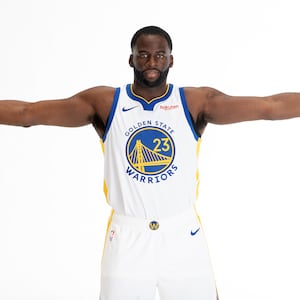Cicely Tyson’s legacy in art and entertainment is one that feels infinite—as if she’s always been there and always will be. An almost-divine figure for generations of fans, peers and disciples, Tyson, who died on Jan. 28 at the age of 96, married brilliant dramatic performances to an empowered sensibility. She was committed to roles that she felt uplifted Black womanhood in some way, and though it sometimes led to periods of inactivity, it sustained a body of work as significant as it is gripping.
She was born in Harlem on December 19, 1924, the daughter of immigrants from the island of Nevis. Raised in a devoutly Episcopalian household, she was forbidden even from going to the movies.
After she was casually told that she should try modeling, Tyson appeared in a hair show and registered at Barbara Watson Modeling School. Soon thereafter she gave up her job as a secretary for the American Red Cross and quickly became one of the top Black models in the country. She would later admit that her time modeling was unfulfilling: “I felt like a machine,” she told Time magazine.
Modeling, too, was merely a steppingstone. While she was waiting for an appointment with Ebony magazine’s fashion editor, Tyson was spotted by actress Evelyn Davis. According to Tyson, “When I walked by, she took one look at me and said, ‘Lord, what a face!’ She said I’d be perfect for a movie then in production called The Spectrum. It was about the problems between light-skinned and dark-skinned Blacks. I auditioned for the part and I got it. Actually, the film was never released because the money ran out—but here I am.”
Her decision to act infuriated her deeply-religious mother and led to estrangement between them that lasted for years.
Tyson studied under such theatrical luminaries as Lee Strasberg, Lloyd Richards, and Vinnette Carroll. In 1961, she joined the now legendary cast of the original off-Broadway production of Jean Genet’s The Blacks, a production that starred, at various times throughout its run, a host of actors who would become household names.
“That play produced Maya Angelou, myself, Roscoe Lee Browne, James Earl Jones, Godfrey Cambridge, (playwright Charles) Gordone, who won the Pulitzer Prize (for No Place to Be Somebody). Every Black actor of note came through that show,” Tyson said in a 1995 interview. “It ran for three years, and in the course of its existence, we all left, went off and did other things and came back. I was in and out of it four times.”
Tyson starred on television alongside George C. Scott as a social worker in the 1963 television series East Side/West Side, the first time an African-American actor had a starring role on a major TV series.
Performance was a platform for Tyson. She used that platform to address civil rights issues at a time when the country was raging through turbulent change. “I was on the stage. Every play I did had to do with the civil rights movement. Every single piece addressed it.” Her natural hair on full display on television and in movies was a revelation and a revolution; she became an icon of a burgeoning movement for Black women. As a prominent darker-skinned woman, her visibility flew in the face of ongoing colorism that was always attached to the systemic racism Black actresses were facing in Hollywood.
Tyson spent the ’60s in several brief-running Broadway shows before playing Portia in the 1968 film adaptation of The Heart Is a Lonely Hunter. Another noteworthy role came in 1972, when she played Rebecca Morgan in Martin Ritt’s Sounder, a performance that netted her an Academy Award nomination. And in 1974, she delivered a career-defining performance in the TV movie The Autobiography of Miss Jane Pittman, an adaptation of the novel by Ernest J. Gaines. Tyson earned raves and two Emmy awards for her depiction of the life of a former slave.
An interviewer once told Tyson that she didn’t know Black people had loving sexual relationships until she saw Sounder. The actress was taken aback by the callous ignorance in the statement. “When I regained my composure, I asked her, ‘You thought we were less than human?’” Tyson said.
She said the interviewer’s defense was that she had not known any Black people growing up nor had she attended school with African-Americans.
“Your guilt, for me, lies in your innocence,” said Tyson, summing it up succinctly.
Tyson would go on to more supporting roles in classic television miniseries; notably in the highly-rated television adaptation of Alex Haley’s Roots in 1977; and in the Oprah Winfrey-produced The Women of Brewster Place, a 1989 miniseries based on Gloria Naylor’s novel. She won another Emmy for her performance in the 1994 TV movie Oldest Living Confederate Widow Tells All and starred in a 1998 television adaptation of Haley’s Mama Flora’s Family. In the 2010s, she had recurring roles on popular TV series like House of Cards and How to Get Away with Murder. Tyson won the Tony Award for Best Actress in a Play for her performance as Miss Carrie Watts in The Trip to Bountiful.
Tyson was only nominated for one Academy Award in her career but was awarded an honorary lifetime achievement Oscar by the Academy in 2018. When asked about the attempts by the Academy to be more inclusive in nominating and awarding actors and filmmakers of color, Tyson was forthright.

U.S. President Barack Obama presents the Presidential Medal of Freedom to actress Cicely Tyson during an East Room ceremony at the White House November 22, 2016, in Washington, D.C.
Alex Wong/Getty“I have mixed emotions about it, because it’s not happening with women,” Tyson said in 2005. “I wish African-American women would find themselves in the same position. I can name any number of men who are in that position in lead roles, and making that kind of money, but there aren’t women doing that. I can count the fingers on one hand and not use them all, so I really wish the day will come while I’m still here when I can say, hey, finally we have one position equal to the men and we're being compensated in the same way.”
Her marriage to jazz legend Miles Davis throughout the ’80s was turbulent and troubled. They’d dated in the ’70s and wed in 1981, and both Tyson and Davis would recall her abuse at his hands. Struggling with alcoholism and cocaine addiction, he fell prey to bouts of jealousy and paranoia.
There was always speculation about just how dark things became between the high-profile couple, but Tyson spoke about the marriage philosophically: “You have two people who are so enriched, blessed by incredible talents,” Tyson reflected in a 2015 interview with CNN’s Don Lemon. “I thought he was. He thought I was. And what it takes to live from day to day with that. There are so many facets to a dual life that is completely alien to most people. There have been some of the most incredible moments afforded me through him… Every moment to me is a learning experience. Once I have experienced [the negative] and lived through it and reached another level of understanding of human beings, especially particularly talented ones who don’t know themselves how rich they are, then I am the better for that experience.”
Cicely Tyson’s life and career were not just a study in longevity but in extended grace and determination. She made her name portraying a series of unforgettable women, while also communicating her own brand of righteous resistance in the face of racism and sexism and abuse. Throughout her career, she was honored by the Black Filmmakers Hall of Fame, the Congress of Racial Equality, the National Association for the Advancement of Colored People, and the National Council of Negro Women. She was named a Kennedy Center honoree in 2015; and was awarded the Presidential Medal of Freedom the following year by then-President Barack Obama. Tyson’s memoir, Cicely Tyson: Just As I Am, was released on Jan. 26, just two days before she passed.
Her career spanned seven decades and her legacy is immeasurable.
“Age is a number, OK? We have the greatest gift that we could possibly ever have… And it’s this temple, okay?” Tyson told CBS in 2015. “And if you take care of it, it will serve you well. I’ve never been a person who drank, who smoked, who did drugs. Never. Because I love life.”


